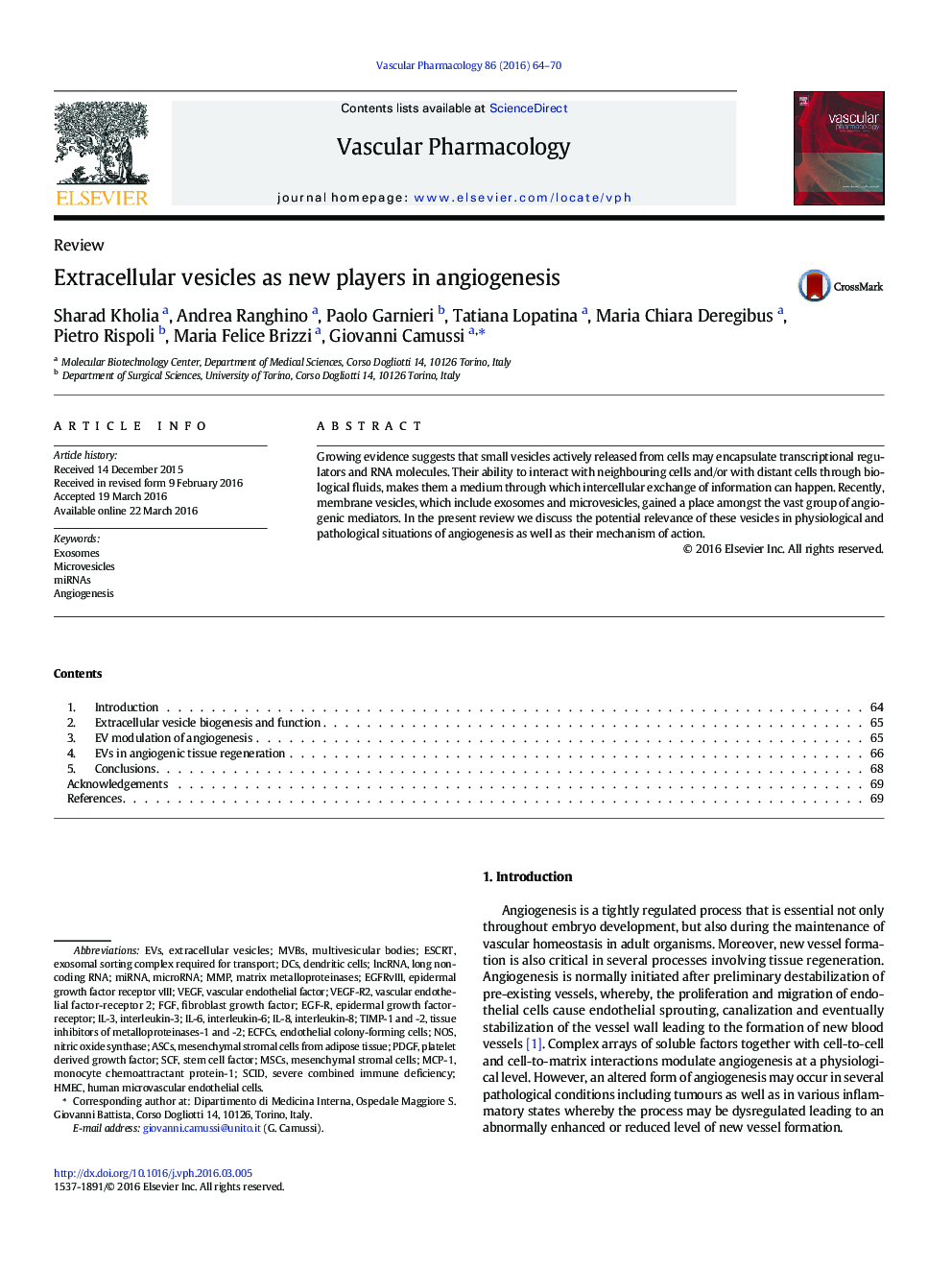| Article ID | Journal | Published Year | Pages | File Type |
|---|---|---|---|---|
| 5558973 | Vascular Pharmacology | 2016 | 7 Pages |
Abstract
Growing evidence suggests that small vesicles actively released from cells may encapsulate transcriptional regulators and RNA molecules. Their ability to interact with neighbouring cells and/or with distant cells through biological fluids, makes them a medium through which intercellular exchange of information can happen. Recently, membrane vesicles, which include exosomes and microvesicles, gained a place amongst the vast group of angiogenic mediators. In the present review we discuss the potential relevance of these vesicles in physiological and pathological situations of angiogenesis as well as their mechanism of action.
Graphical abstractDownload high-res image (204KB)Download full-size image
Keywords
Related Topics
Health Sciences
Medicine and Dentistry
Cardiology and Cardiovascular Medicine
Authors
Sharad Kholia, Andrea Ranghino, Paolo Garnieri, Tatiana Lopatina, Maria Chiara Deregibus, Pietro Rispoli, Maria Felice Brizzi, Giovanni Camussi,
